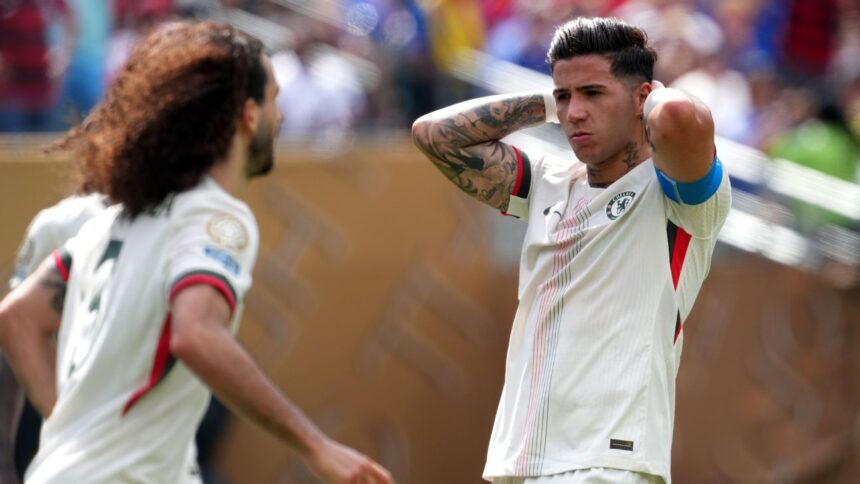Enzo Fernández Alerts on Dangerous Conditions at the Club World Cup
Chelsea captain Enzo Fernández has expressed his concern about the “very dangerous” conditions during the Club World Cup. The Argentinian midfielder urged FIFA to “change the calendar” for the 2026 World Cup with the aim of avoiding risks for the players in next year’s tournament. The high temperatures during the Club World Cup in the United States have generated concern among renowned players and coaches. The global players’ union FIFPRO has presented data suggesting that three matches should have been delayed or postponed because the heat exceeded the threshold of 28 degrees Celsius according to the wet bulb globe temperature (WBGT) meter. In the Chelsea vs. Fluminense semi-final match at MetLife Stadium in New Jersey on Tuesday, temperatures reached 96 degrees Fahrenheit at the start of the match at 3 p.m. ET. With the Premier League team facing Paris Saint-Germain in Sunday’s final at the same stadium at 3 p.m. ET, Enzo, a midfielder from Argentina, admitted to having had difficulties adapting to the conditions.“Honestly, the heat is incredible… Playing in this temperature is very dangerous, very dangerous,” Enzo stated.
Enzo Fernández

Arsène Wenger, former Arsenal manager and current FIFA’s Chief of Global Football Development, acknowledged that the summer heat during the Club World Cup has affected the game. “The heat in some matches was a problem,” Wenger admitted. “We tried to combat it with cooling breaks and watering the fields during the breaks. We learned a lot in that regard.” Looking ahead, Wenger indicated that FIFA is considering the use of covered stadiums in cities like Atlanta, Dallas, Los Angeles, and Houston to host the first matches of next year’s tournaments. He also mentioned that FIFA analysts have studied the impact of heat on player performance, discovering that temperatures above 35 °C (95 °F) affect high-speed running and sprints more than the total distances covered. “Certainly, next year there will be more covered stadiums, as we have to follow the television schedule. We are learning to be better equipped to face these conditions,” Wenger concluded.“Let’s hope they change the calendar next year. At least so that it remains a beautiful and attractive football spectacle, right?” he added.
Enzo Fernández











